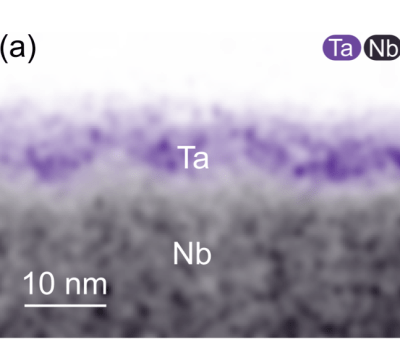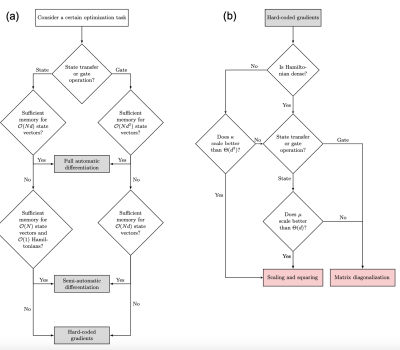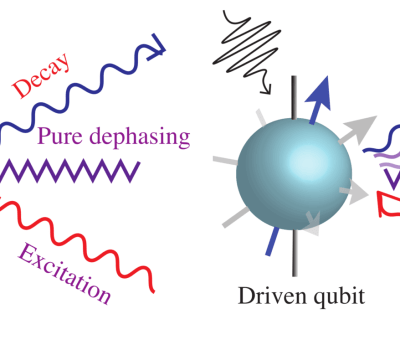Superconducting quantum circuits rely on strong drives to implement fast gates, high-fidelity readout, and state stabilization. However, these drives can induce uncontrolled excitations, so-called “ionization”, that compromise the fidelity of these operations. While now well-characterized in the context of qubit readout, it remains unclear how general this limitation is across the more general setting of […]
Uncategorized
New publication on Applied Physics Letter: Loss tangent fluctuations due to two-level systems in superconducting microwave resonators
Superconducting microwave resonators are critical to quantum computing and sensing technologies. Additionally, they are common proxies for superconducting qubits when determining the effects of performance-limiting loss mechanisms such as from two-level systems (TLSs). The extraction of these loss mechanisms is often performed by measuring the internal quality factor Qi as a function of power or […]
New arXiv preprint: Protomon: A Multimode Qubit in the Fluxonium Molecule
We introduce a multimode qubit, the protomon, encoded in a fluxonium molecule circuit (see image on the right). Such qubits are intrinsically protected against energy relaxation, as the loss operators have exponentially suppressed matrix elements between the logical states. It is also insensitive to the dephasing, as its spectrum exhibits zero derivative with respect to […]
New PRApplied Publication: Crosstalk-robust quantum control in multimode bosonic systems
Superconducting cavities offer a hardware-efficient platform for quantum information processing. Controlling such bosonic modes requires nonlinear elements, for example, transmon ancillae. While a transmon is coupled to multiple cavities, crosstalk happens – the qubit frequency is susceptible to one of the cavity’s state and thus influence the control on other systems. To mitigate such coherent […]
On the cover of PRX Quantum: Tunable inductive coupler for high fidelity gates between fluxonium qubits
The fluxonium qubit is a promising candidate for quantum computation due to its long coherence times and large anharmonicity. Our experimental collaborators present the experimental realization of a tunable coupler that realizes strong inductive coupling between two heavy-fluxonium qubits, following our previous theoretical analysis in this paper. The coupler enables the qubits to have a […]
QFit won the Core77 Design Awards 2024
QFit, an interactive superconducting circuit device characterization software developed by Koch group, receives Notable (3rd place in the professional group) of Core77 Design Awards 2024, under Apps and Platforms category. Through our software’s streamlined graphical user interface, users interactively calibrate measurement data, extract data points, and perform parameter fitting. Recognizing excellence in all areas of […]
New Open Access Publication in npj QI: Systematic Improvements in Transmon Qubit Coherence Enabled by Niobium Surface Encapsulation
The inherent interactions between the qubits and their environment lead to decoherence, limiting the performance of these devices. In this paper, we present a novel technique for improving T1 coherence times in transmon qubits by passivating the surface of niobium and preventing the formation of lossy surface oxide. Our comparative investigation across different qubit foundries […]
Open Access publication in J. Phys. Commun.: Optimal control of large quantum systems: assessing memory and runtime performance of GRAPE
Quantum information processing has spurred interest in quantum optimal control for tasks such as state preparation, error correction, and realization of logical gates. Gradient Ascent Pulse Engineering (GRAPE) is a prominent technique for implementing quantum optimal control by adjusting parameters to minimize infidelity in state transfers or gate operations using gradient descent. Many efforts have […]
New arXiv preprint: Crosstalk-Robust Quantum Control in Multimode Bosonic Systems
Superconducting cavities offer a hardware-efficient platform for quantum information processing. Controlling such bosonic modes requires nonlinear elements, for example, transmon ancillae. While a transmon is coupled to multiple cavities, crosstalk happens – the qubit frequency is susceptible to one of the cavity’s state and thus influence the control on other systems. To mitigate such coherent […]
New Quantum Publication: Completely Positive Map for Noisy Driven Quantum Systems Derived by Keldysh Expansion
Decoherence errors, caused by the interaction of quantum systems with their environment, pose a major challenge for the practical implementation of quantum computing. Accurately modeling these errors is essential for analyzing and improving gate fidelities. While Lindblad master equation and its several generalizations have been proposed, there is still ongoing exploration for simpler and more […]








